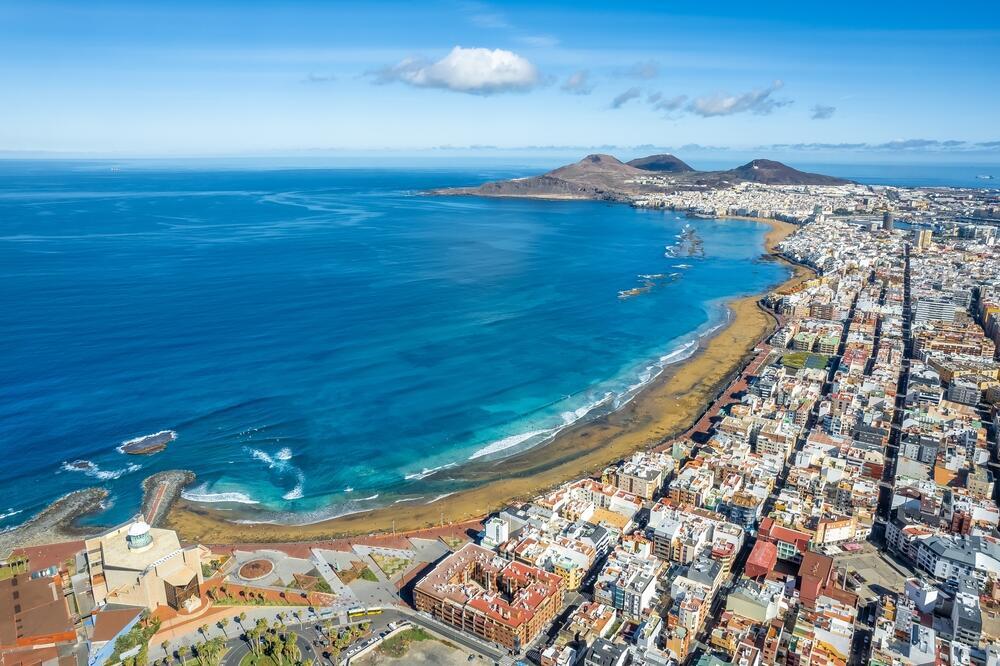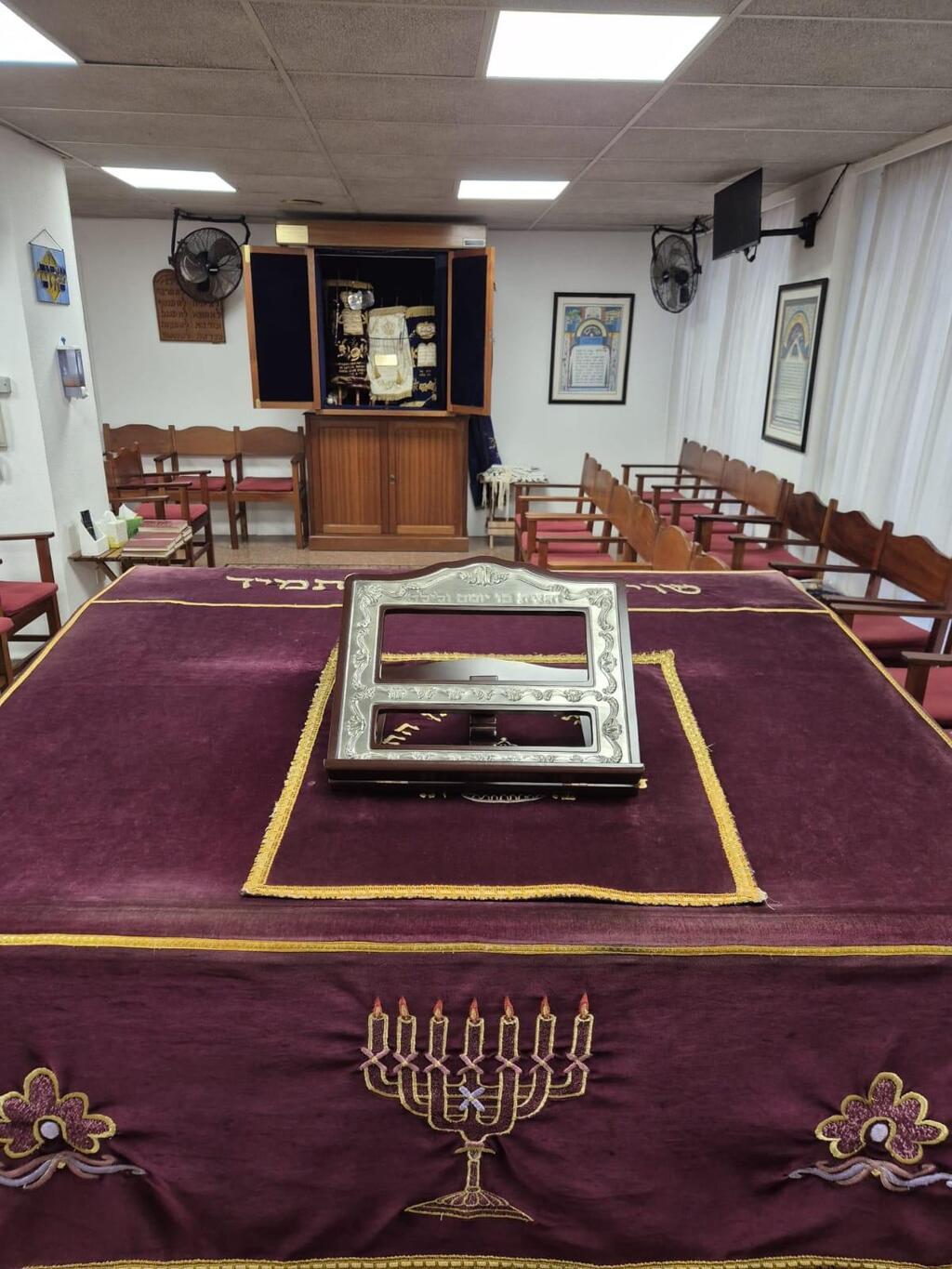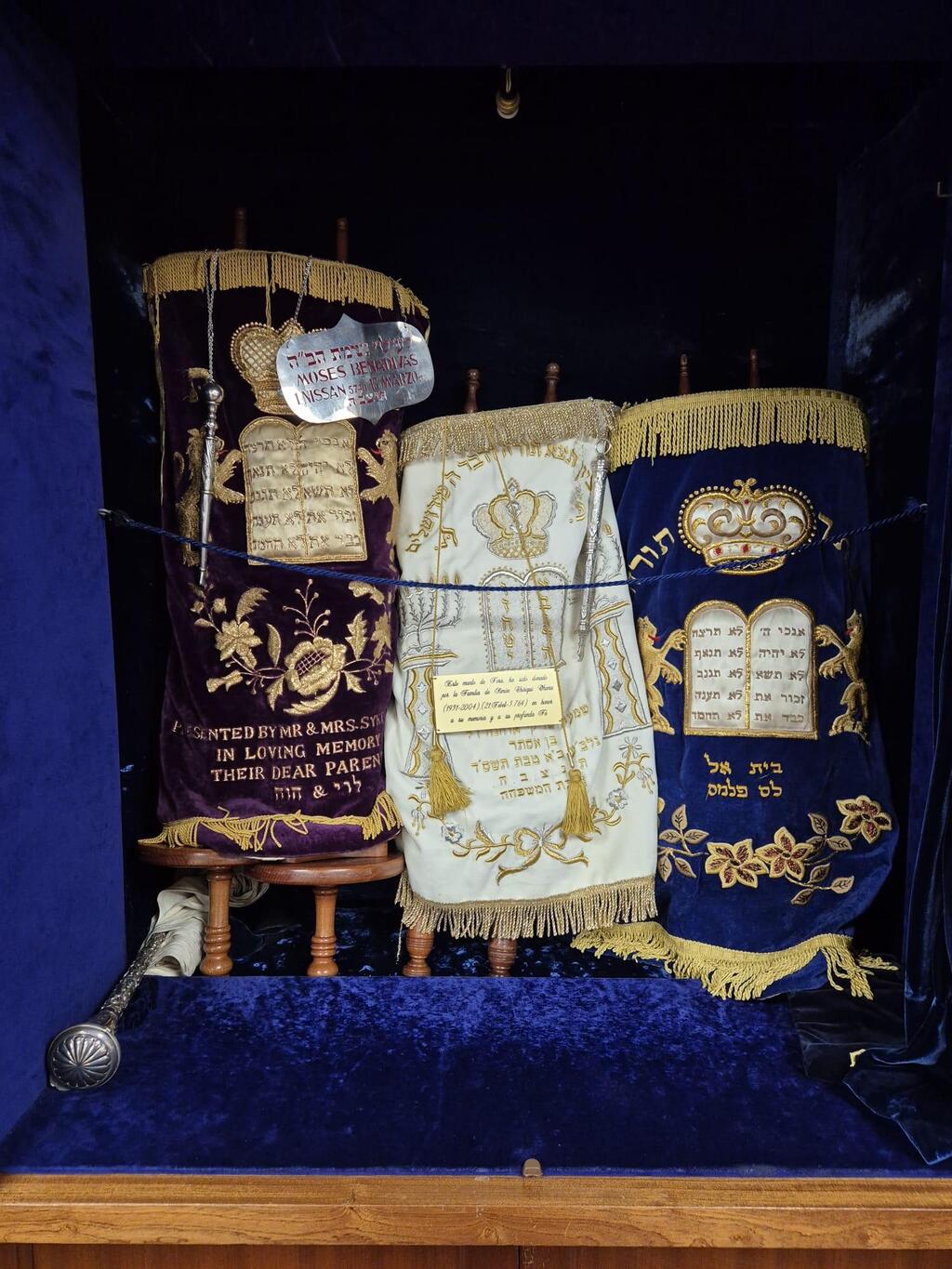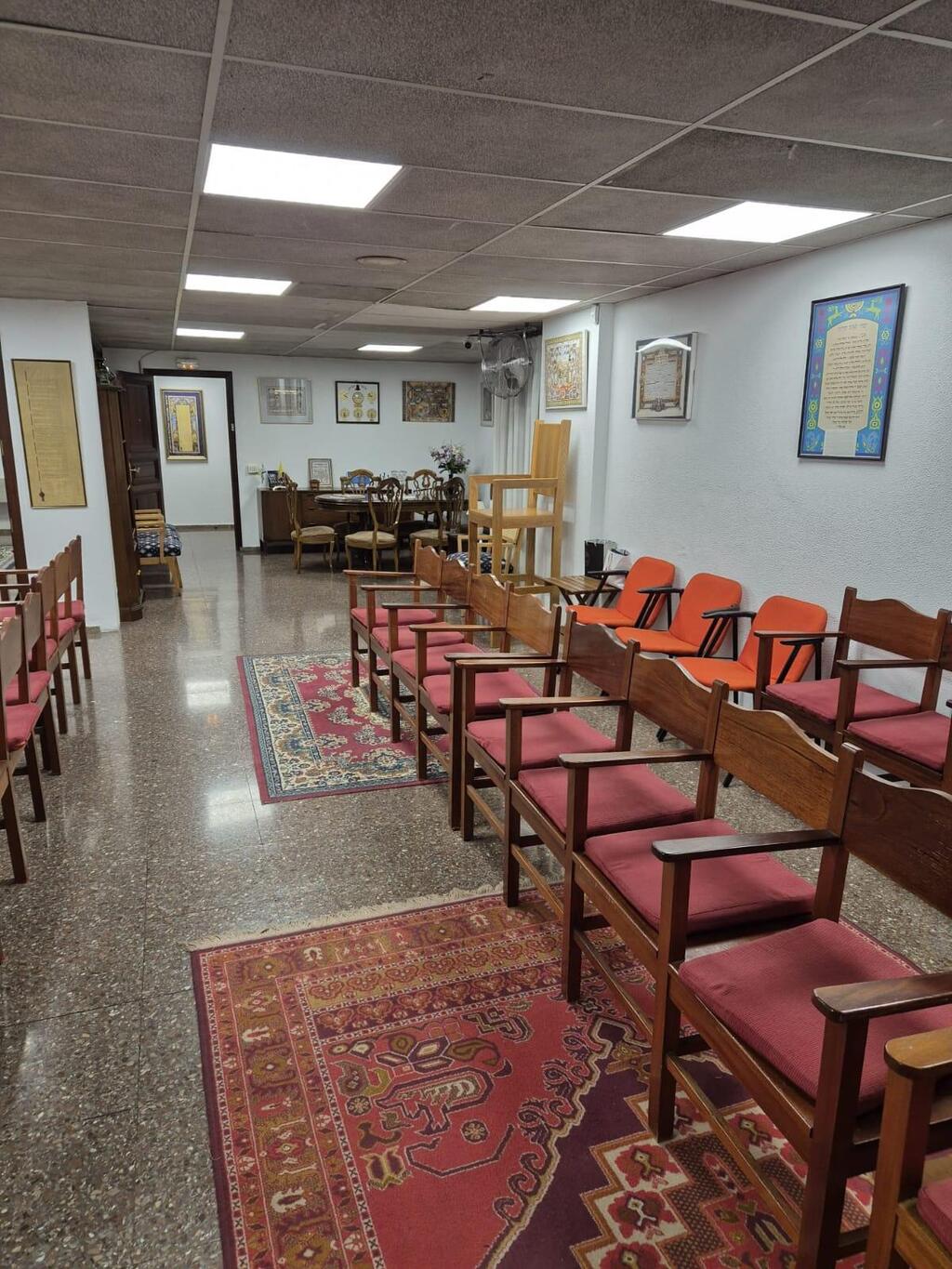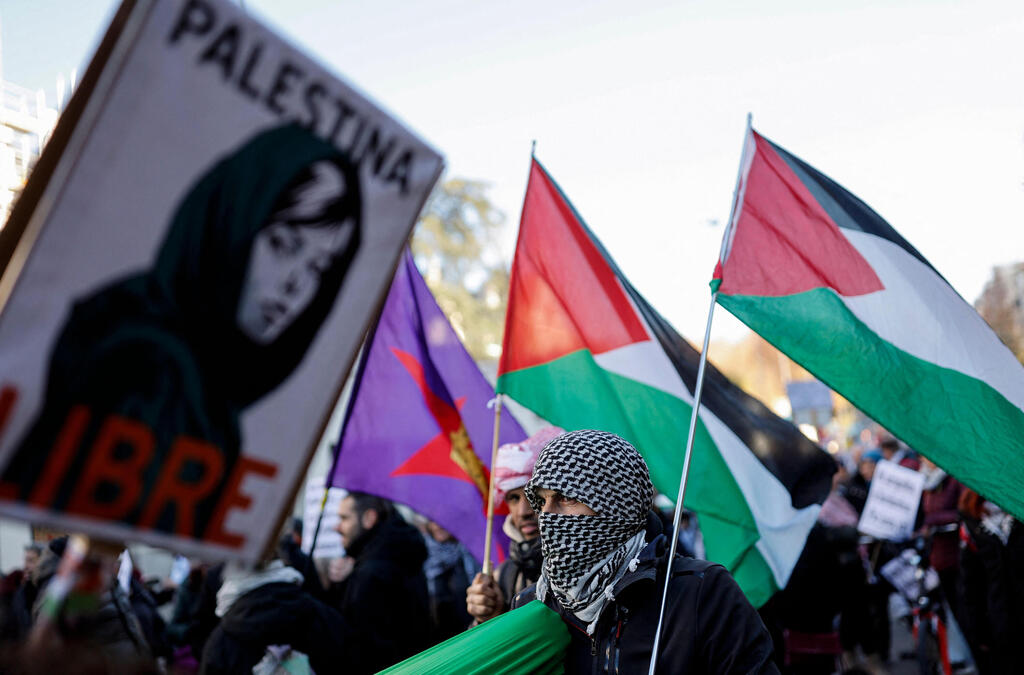Getting your Trinity Audio player ready...
Las Palmas is a city located on the island of Gran Canaria, part of the autonomous community of the Canary Islands in Spain. Situated in the northeastern part of the island, it is integrated into the Spanish governance system.
Throughout history, Jews arrived in Las Palmas through various means. One of the main reasons was the search for refuge from religious persecution in Europe, particularly after the expulsion of Jews from Spain in 1492. Some of the Jews who migrated to the island were merchants, explorers and economically established individuals seeking new opportunities. The Canary Islands also served as a stopover point on the way from Europe to Africa or the Americas, which allowed Jews to establish trade-based communities and live there. Over the years, additional Jewish communities developed on the island, contributing to its cultural and historical heritage.
Today, the Jewish community in Las Palmas consists of approximately 20 families. These are Jews who migrated to the island from various places, including Israel, northern Morocco, Latin America and European countries. Despite being a small community, it faces significant challenges in the 21st century.
I visited Las Palmas as part of a celebration for my birthday. However, as a researcher of small Jewish communities worldwide, I couldn’t miss the opportunity to speak with leaders of the local Jewish community and learn about their lives.
The revival of the community in 1969
In 1969, three friends—David Gavizon, Felix Amargi and Solomon Zarayan—decided to join forces to revive the Jewish community in Las Palmas. Initially, they rotated prayer services in each other's homes, but they soon realized the community needed a permanent synagogue. The three rented an apartment and established a synagogue within it, creating separate sections for men and women.
This initiative successfully attracted many Jews. Since then, prayers have been held on Shabbat and holidays in different apartments rented by the community over the years. The synagogue remains a religious and communal center for Jews in the area, hosting special events such as weddings, brit milahs, bar mitzvahs and even Passover seders.
Leon Senanes served as the community president for four years before stepping down two years ago to make way for his son, Solomon Senanes, who succeeded him. Solomon Zarayan served as the community rabbi and cantor for 50 years, but since his passing, no replacement has been brought in. Dr. Paul Barmi, a community member, currently leads the prayers as the cantor on Shabbat.
One of the Torah scrolls kept in the synagogue’s ark originally belonged to the Jewish community in Tenerife. Over the years, the Tenerife community largely disappeared, and the Las Palmas community adopted the Torah scroll. However, in recent months, the Tenerife community has been reestablished by Israelis and Jews who have moved there, building a synagogue and a Chabad house. Consequently, the Las Palmas community decided to return the Torah scroll to its original home to support the emerging Jewish community in Tenerife.
Jewish life in Las Palmas today
During Passover, the community leaders invite Chabad representatives from Barcelona to organize seders, giving all community members the opportunity to participate in the holiday celebration. Chabad also provides matzah, kosher wine and food to ensure a proper and festive seder.
Las Palmas does not have an independent Jewish school. Paul Barmi notes that the community is aging, with very few teenagers or young children, making such a school unnecessary. The few school-age children attend public schools, though Paul and his wife sent their three daughters to study in Israel.
The city also has a Jewish cemetery located near the urban center. It preserves the heritage and history of Jews in the area, with graves of Jewish residents who lived on the island over the years. The cemetery is an important site for the community, serving as a place of remembrance and solace for families dealing with loss. The community takes great care to preserve the cemetery, respecting Jewish burial traditions.
Paul and his wife established a chevra kadisha (burial society) in Las Palmas. When asked how they ensure proper Jewish ritual purification (taharah) without a mikvah, Monty, a member of the burial society committee, explained that he personally immerses in the sea. In specific cases, temporary solutions are found, or arrangements are made to use mikvahs in other locations if necessary.
Fifteen years ago, Paul’s wife, Corinne Barmi, reached out to suppliers in Paris to order kosher food. When they asked if there was a dedicated store to send the products to, Corinne realized there wasn’t. She approached the managers of a well-known supermarket and requested the opening of a small kosher food section. They agreed, and for years, the community (as well as local Muslims who eat halal) enjoyed access to kosher products. However, due to the community’s small size, demand was insufficient, and the section was closed. For the past decade, Las Palmas has not had a kosher store like those found in larger Jewish communities.
Nevertheless, the community makes significant efforts to provide kosher products, such as wine and matzah, for its members. These items can be purchased in the community building. Local merchants occasionally supply kosher products, and community members often bring kosher food from larger Spanish cities or Israel.
However, there is no local shochet (kosher butcher), so meat is imported from cities like Madrid or Barcelona, or brought in from Israel. Similarly, there is no permanent mohel (ritual circumciser); in cases of brit milah, the community organizes and brings in a mohel from larger cities in Spain or other countries. Recently, a mohel was flown in from London to perform a circumcision for a newborn.
Security and challenges
The Las Palmas synagogue is discreetly located, with no sign or information about its existence or location online. While the police are aware of its location, there is currently no security presence at the entrance to protect community members from potential antisemitic attacks.
Since October 7, the community has taken extra precautions regarding security, frequently checking surveillance cameras and remaining vigilant. Las Palmas has a significant Muslim population, including Arabs from the Palestinian territories. Due to the Jewish community’s small size, its members have chosen not to hold public demonstrations, despite their strong love and support for Israel.
Unlike other Jewish communities that often report positive relationships with local governments, the Jewish community in Las Palmas has no connection with local authorities. In December 2023, the city council adopted a resolution “for peace,” condemning Israel’s response to Hamas and labeling it “genocide.” Paul Barmi attended the meeting with right-wing politicians, but when he asked the mayor and council members to consider the perspective of the Jewish community in Gran Canaria, they refused.
Despite these challenges, the Las Palmas Jewish community remains committed to supporting Jews and Israelis who visit or live on the island. For example, leaders received a phone call from the local prison about a Jewish family—a couple and their child—who desired a Shabbat kiddush. For two years, the community organized weekly visits to provide them with a Jewish atmosphere. The family remained in close contact with the community after their release.
Preserving the future
One of the community’s greatest challenges is ensuring its continuity, as many young people leave the island for education or work and don’t return due to career opportunities or relationships elsewhere. The community is deeply committed to preserving Jewish identity and fostering connections between generations. To this end, it maintains relationships with other Jewish communities in Spain and Europe and seeks to engage with Israeli and Jewish tourists visiting the island.
Will these efforts be enough to sustain the Jewish community in Las Palmas for another 50 years? Only time will tell.
- Ayelet Mamo Shay is a businesswoman, author, international lecturer and researcher of small Jewish communities around the world.


